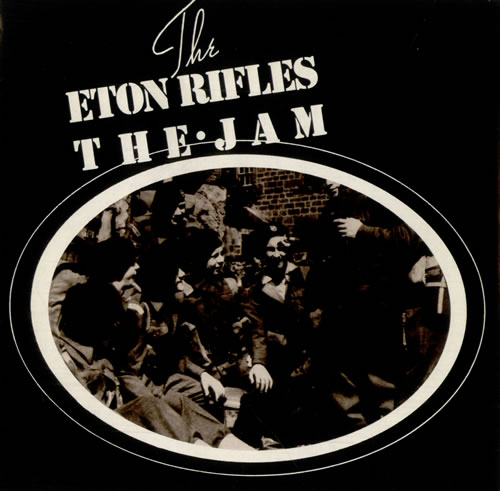In this feature which originally appeared way back in Uncut’s issue 112, Paul Weller, Bruce Foxton, Rick Buckler and producer Vic Coppersmith-Heaven recall the making of The Jam’s classic single, “Eton Rifles”..
By late 1979, The Jam had taken on a singular position within British music. With punk a distant memory and the preening vacuousness of synth-pop on the rise, explosive teenage operas like “Strange Town” and “When You’re Young” spoke directly to the country’s young and disenfranchised. Out in the arterial sprawl of the South East and in the grey, semi-urban expanses across the country, a generation all too familiar with a system where “The world is your oyster but your future’s a clam” were willing to follow Paul Weller wherever he took them.
For “The Eton Rifles“, Weller set his sights on his most overtly political and contentious target yet. Following the Conservative victory at May’s general election, a raft of new policies led to a swift rise in unemployment and a growing suspcion that was the nation was being divided along class lines. “The Eton Rifles” was inspired by TV footage of Right To Work marchers being taunted by boys from Eton school – and it perfectly captured the queasy sensation that the country was slipping into what Weller would later describe as “the modern nightmare”.
Built on a roar of feedback and slashing guitars, it articulated the frustrations of those who believed privilege was being used to keep them down, while mocking those who suggest the solution can be found in a “revolutionary symphony” – a sly dig at The Clash, perhaps? That musical punch, more like heavy rock than power pop, perfectly reflected a nation in a state of both musical and political flux.
“The Eton Rifles” shot to number three in the charts in October 1979, and The Jam’s ascendancy – confirmed by follow-up “Going Underground” reaching number one early the next year – was complete. In the war against apathy, Thatcherism and vacuous say-nothing pop, the battle lines had been drawn in three and half spine-tingling minutes.
From this point on, whether he liked it or not, Paul Weller was a spokesman for a generation…


